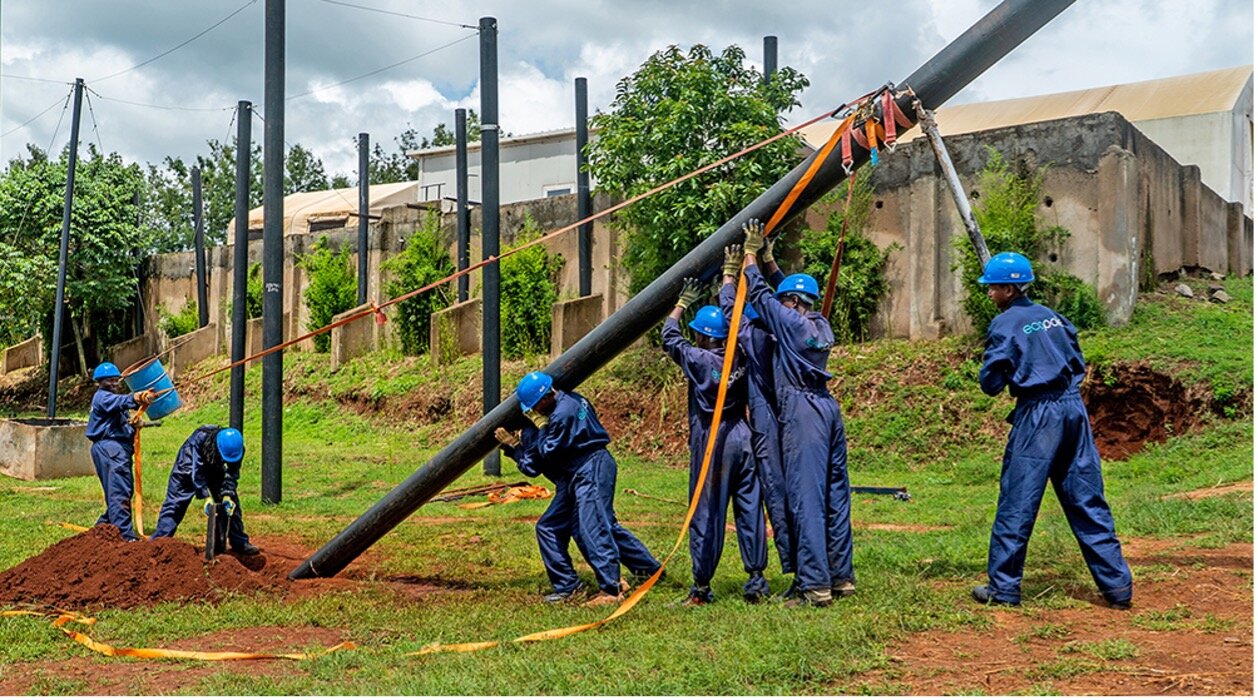EcoPole
In 2011 Mr. Einar Haveland founded EcoPole and started the development process of environmentally friendly poles together with Norwegian investors, and support from Innovation Norway and Norad. The idea and vision behind EcoPole were to create poles that did not cause deforestation while being durable enough to overcome the challenges of nature. Yearly millions of trees are harvested to produce wooden utility poles, which are contributing to deforestation. The eco-friendly utility pole“EcoPole” is a Bamboo and composite utility pole with numerous environmental and practical benefits.
How it all started
The idea behind EcoPole came to life as founder Mr. Einar Haveland worked at the refugee camp Dadaab in Kenya. As an engineer, he saw the challenges connected with poles for distribution grids.
- Firstly, the large amount of wood taken from Africa’s valuable forests to produce the wooden poles. Secondly, the problems caused by deterioration of the poles by the African nature; sun, salt, woodpeckers, termites, and rodents. This is a bad cycle. The need for energy is undisputed, but the consequences of wrong products cause damage to the environment.
One of the main reasons why Mr. Haveland started his business adventure in Sub-Saharan Africa was because of the enormous need for energy production and distribution of electricity. Africa has the lowest energy access rates in the world, according to the International Energy Agency. Roughly 600 million people lack electricity and 890 million cooks with traditional fuels (OECD).
- Most of the materials that go into the production of EcoPole are manufactured in Africa. EcoPole cooperates with local companies that meet our requirements both in know-how, quality, and ethical standards. The "EcoPole” is developed, designed, and engineered in Norway, and manufactured in Africa. This results in a transfer of know-how, local production, and administrative jobs connected to the EcoPole projects in Africa. This reduces both logistics and carbon footprint.
Lessons learned
Mr. Haveland mentioned several challenges when starting a business in a new market to them. First of all, the big cultural difference between Norway and the different countries in Africa is a barrier. Another challenge EcoPole is facing is corruption, or «political issues» which it is also called. However, EcoPole has not participated in any corruption which has caused exclusion from many public tenders. The last challenge he mentioned is the point of financing:
- Most Norwegian investors are afraid to invest in Africa. They have also often a short horizon when it comes to their investments. We find it very difficult to find sufficient risk money from the Norwegian government or institutions, it is very bureaucratic and difficult to access the application processes. Innovation Norway has primarily a mandate to support the creation of jobs in Norway. We need financial risk money in order to invest in new factories in Africa which also will result in more employees in Norway (engineers, planning, sales and back office and IP rights).
When starting your business venture on the African continent Mr. Haveland recommends to have a very long-term plan!
- Start with a humble approach and with a long-term plan and funding. Be humble and listen, learn the different cultures (Tribal, politics, society, history…) and business cultures. Do not try to educate and patronize the locals by referring to “this is how we do it in Norway”. Find local partners with experience both local and in collaboration with European countries and legislation/rules.
Implications due to the pandemic
Covid-19 has affected EcoPole less than expected. During the pandemic, they have been traveling in both East- and West Africa.
- We are impressed with the safety measures in the different countries. Of course several companies and institutions have closed their offices and postponed projects, which has affected new orders and projects. TEAMS, SKYPE, ZOOM, and other digital meeting rooms have been a good help. However, this can never replace physical meetings.
Learn more about EcoPole here.

